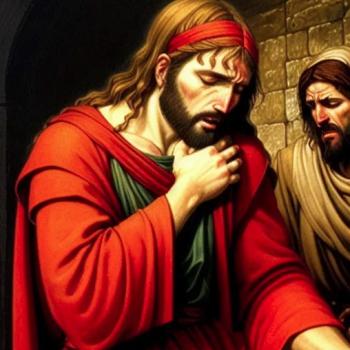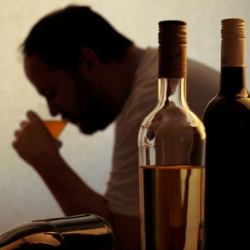Pastor, are you an addict?
If you have ever had the thought run through your brain, “Am I drinking too much?” or “Would I be in trouble with my church if they knew I was doing this?” You are probably already in deeper trouble than the fallout from your church might be if they would find out. I drank for several years prior to my catastrophic failure and a couple years into my heavy drinking career, I had multiple moments where there was clarity in my mind that I was probably an alcoholic. For an addict, rationalization is a tool to be used carefully and with precision. Each and every time, there was rationalized thought and action that led me to convince myself that I really was okay.
I can remember standing in my garage, after drinking the night before, trying to assess the cost of my actions, if anyone knew what I was doing. The rationalization took over, and convincing myself that I didn’t drink as much as the next person, I went along my way. It took me falling hard and fast in the final days of my drinking career, and nearly losing everything for me to realize that I had a significant problem. I was an alcoholic.
If you are a Pastor in a local church, there are alot of reasons that you may be drinking or using opioids or other drugs. Statistically speaking, Pastors struggle with these substances at the same rate as non pastors. Believe me, I recognize that being a Pastor is difficult. One of the reasons why I am no longer a professional paid Pastor is that I couldn’t handle the heat that ministry brings day in and day out. I couldn’t handle the criticism, the loss, the pain, and sorrow that I felt when people around me fell away. There are many reasons that Pastors choose to escape with a substance.
Self Medication
When someone experiences deep pain, they often turn to something that makes them feel better. In my own experience, alcohol initially took the edge off. I could come home from a stressful day at work, have a beer and relax internally. I could experience a brief sense of reprieve from the worries of the day, the parishioners requests’ that just keep coming, or the complaints that I would receive via email. Then, it turned into a habit. I couldn’t be comfortable in my own skin when at home, unless I had alcohol with me or available to me. If there were a situation where I knew that alcohol was not an option, I had significant anxiety around the event or situation. My work situation deteriorated at the church that I was at and the stress levels continued to increase. We were in the middle of a schism between leaders, I felt caught in the middle, and self medication seemed necessary to remain engaged. I ‘owed’ it to myself to drink after getting through these stressful situations. As a church we were running out of money and I was watching the demise of a local church and I was a main contributor to the issue with the salary that I was taking. Self Medication seemed very necessary. Then in the midst of a job transition, alcohol seemed like a great medicine allowing me to drown some of my pain deep below the surface.
Release or Escape
If you are a regular drinker, you know that the times that you are drunk are some of the fastest moving times in life. Things go on around you and time passes without any regard to your mental situation. My life had become tense and anxiety filled (partly because I was making choices that caused me anxiety) and escaping the reality that was around me seemed necessary. If I drank enough, I could sleep. I could check out and sleep hours on end, which is something that I didn’t seem to be able to do on a regular basis without alcohol. What I learned later was that the amount of alcohol that I was drinking was simply poisoning my body to sleep, and then when I would wake up, I wouldn’t actually experience the benefit of the sleep that I had engaged in. I needed to escape reality, and alcohol provided me the outlet to do so.
Physical Necessity
In the end, after experiencing self medication and escape, release, and sleep, I was physically addicted to alcohol. After I was found passed out in my sedan on the side of a gravel road near my house, the EMT’s that discovered me let me know later that they were worried that I would begin to experience the effects of withdrawal as they worked to revive me. I had been drinking heavily for a few days, trying to put away pain, only to create more chaos and havoc in my life and family. My body was used to having a certain amount of alcohol in the bloodstream, and physically, I needed it to operate and function with some normalcy. When I was detoxing in the hospital, the doctors had to monitor my heart rate to make sure that I didn’t have a heart attack as I was getting rid of the toxins in my bloodstream. I had become physically dependent on alcohol. And it was killing me.
Scientific Studies
I’m not a scientist. I’m a failed Pastor who is a recovering alcoholic. But there have been studies done by people FAR smarter than me that would back up my own experience with the progression of alcohol. Morton Jellinek was a scientist whose research helped form a better understanding of alcohol addiction today. Jellinek’s studies and publications eventually led to the formation of the Jellinek Curve. It illustrates the symptoms seen during a person’s progression through the stages of alcoholism. The four main stages include:
- Pre-Alcoholic Stage
- Early-Stage Alcoholism
- Middle Alcoholic Phase
- End-Stage Alcoholism
I resonate with each of the states that Jellinek describes in his writings. He tells my story, from a very scientific perspective.
So, now what?
If you are a Pastor and have read this far, you might be thinking to yourself one of two things.
- This guy is off his rocker and just needed to stop drinking and everything would have been okay!
- I might have a problem.
Responding to the writing above with judgment and advice puts you in the category that most of my church friends find themselves in. Judgment and prescription toward help is something that I experienced during my entire recovery period from church friends.
But if you are thinking that you might have a problem, like even an inkling of a problem, I beg you to find someone that you know will care for you and tell them. Tell them what has been going on in your mind, in your private world, and see what they say. Make a plan moving forward to ‘come clean’ with those that you lead and experience the best life that you can possibly know, with freedom away from alcohol or substances.
You can contact me, if you would like someone safe to tell and process through the issues that you are experiencing. But telling someone in your own context is important to begin to deal with the consequences and experience true recovery.












